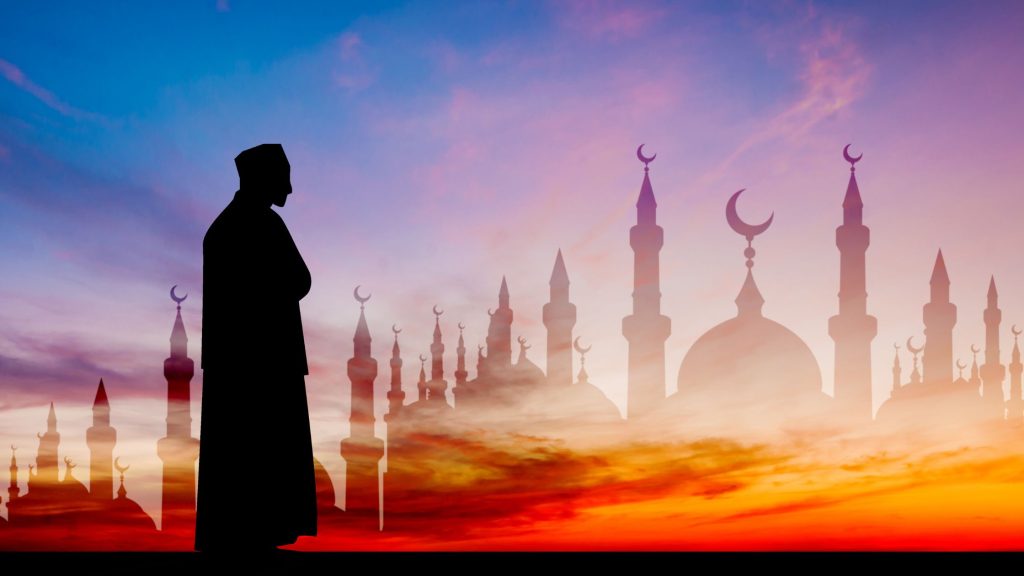
Islam offers an all-encompassing approach that relates deeply to the personal life sphere of a believer by providing spiritual, ethical, and practical guidance. The practices of Namaz (Salah) and Quranic recitations are equally important. While Namaz refers to the five daily prayers of a Muslim that connect him directly to Allah, the Quran is the divine book that contains wisdom, laws, and spiritual guidance. Both the Namaz and Quran are a crucial part of the daily life of a Muslim as they construct the unique disciplined, devoted, enlightening lifestyle of a true believer.
The Importance of Namaz in Islam
1. Namaz: A Direct Connection with Allah
Much like other forms of prayers, Salah is also regarded as one of the Five Pillars of Islam. Dictated in the Quran, it is one of the most significant acts of devotion practiced by Muslims around the globe. It is optional and rather subjective to each Muslim as per their belief in Allah’s grace. Namaz enables the practitioner to:
- Build a personal relationship with Allah without intermediaries.
- Ask for forgiveness for wrongdoings and failures.
- Thank Allah for His numerous gifts and blessings.
- Achieve tranquility and peace from the worries of everyday life.
2. The 5 Daily Prayers and Their Importance
Fajr (Pre-dawn) – A new day waiting ahead with a fresh spirit.
Dhuhr (Midday) – Time to pause the day and reconnect with Allah.
Asr (Afternoon) – A power boost of faith to continue with daily activities.
Maghrib (Evening) – Prayers to Allah for keeping us throughout the day.
Isha (Night) – Time to reflect and seek protection from Allah.
To Muslims, every prayer acts as an anchor within the day’s activities, reminding them of their goals and nurturing their hearts towards their Creator.
3. The Role of Namaz in Purification and Discipline
Repeated prayers create discipline, patient behaviour, and self-restraint. The requirement of taking wudu (ablution) before each prayer guarantees physical and spiritual hygiene. Ruku (bowing) and Sujood (prostration) depict humbleness and submission to Allah.
4. Namaz as a Shield from Evil
The Quran mentions:
“Indeed, prayer prohibits immorality and wrongdoing, and the remembrance of Allah is greater. And Allah knows that which you do.”
(Surah Al-Ankabut 29:45)
Namaz acts as a barrier to sin and helps believers live righteously.
The Importance of The Quran In Islam
1. The Quran as the Guiding Principle
The Quran is the guiding book for Muslims all over the world. It has the pillars, principles, and teachings of faith, laws, morality, science, and even the afterlife. It was revealed to the Prophet Muhammad (PBUH) over 23 years, as every prophet had done in the past. Every Muslim is advised to read, understand, and most importantly, implement what they learn in the Quran in their daily life.
2. The Healing and Merciful Aspects of The Quran
Just like a physician diagnoses a patient, Allah describes The Quran as a gift for healing:
“And we send down of The Quran that which is healing and mercy for the believers…”
(Surah Al-Isra 17:82)
While reciting The Quran brings harmonious tranquility to your heart, it removes worries, and even strengthens your faith.
3. Holistic Guidance From The Quran
The Quran provides guidance in every aspect of life, which includes;
Faith and Worship – Understanding Tawheed (oneness of Allah) and the importance of Namaz.
Family and Society – Discussing how to respect your parents, maintaining justice and treating everyone with kindness.
Business and Ethics – Maximising your wealth without compromising through corrupt means and being truthful and honest during transactions.
Life after Death – Preparing for the Day of Judgment and seeking Allah’s mercy.
4. The Reward of Reciting and Memorising the Quran
Islamic worship is infused with numerous rewards and reading the Quran is no exception. The words of the Prophet Muhammad (PBUH) expressed:
“Each letter in the Quran is a hasana, and for every hasana there is a reward of ten.” (Tirmidhi 2910)
Highly revered in Islam, Quran memorisation, or ‘Hifz,’ earns special recognition for the ‘Hafiz-ul-Quran’ on the Day of Judgment.
The Interrelation Between Namaz And The Quran
Nor do these two activities stand apart; Quranic recitation always accompanies Islamic prayer, or “Namaz,” making it an inherent aspect of the activity. Here is how they combine:
1. Recitation of the Quran in Namaz
It is mandatory in every Salah for a Muslim to recite Surah Al-Fatihah and afterward say a portion of the Quran. This allows Muslims to remain connected with the Quran numerous times throughout the day.
2. The role of Namaz in Deepening the Message of the Quran
Praying five times daily, Muslims put the Quranic teachings into action, enabling them to assimilate the principles into day-to-day life.
3. Surahs Recommended in Namaz
Some of the Surahs believed to be beneficial for reciting in Namaz include:
Surah Al-Ikhlas – The Oneness of Allah.
Surah Al-Falaq & Surah An-Nas – Reciting to ward off evil.
Surah Al-Kahf (on Fridays) – Earning rewards and safeguards against Dajjal.
4. How Does Prayer Assist in Quran Memorization (Hifz)?
It is common to memorize passages of the Quran during their recitation in prayers (Hifz). Many of the Huffaz utilise those prayers that they regularly engage in as a rehearsal.
How to Make Improvements to Your Namaz and Quran Recitation?
1. Having Knowledge of the Vocabulary of the Quran
For a complete understanding, Muslims need to study the Tafsir (exegesis) of the Quran so that its meanings can be understood.
2. Enhancing Tajweed (Quran Recitation)
The Quran needs to be read with precise articulation, and hence it can only be learned in Tajweed classes. This should be done to improve the recitation of the Quran in Namaz.
3. Regularity In Salah Is Essential In A Muslim’s Life
Every Muslim should try not to skip any Salah for it is the pillar of a person’s faith. The Prophet (Peace be Upon Him) stated: “On the Day of Resurrection, each person shall be asked about his Prayer. And if he performs it properly, then whatever deeds he does subsequently will also be accomplished properly.” (Sunan An-Nasai 466)
FAQs
1. What is the significance of Namaz in Islam?
i. The foremost act of worship that a believer is mandated to observe is Namaz. Through it, he/she connects with Allah. It cleanses, engenders discipline, and helps avoid immoral acts.
2. Am I allowed to pray Salah in a different language?
Salah should be performed in Arabic because the Prophet Muhammad (PBUH) instructed it to be done so. A person can, however, supplicate (Dua) after the prayer is completed in any chosen language.
3. When is the ideal time to read the Quran?
The times of the day with maximum effectiveness for Quran recitation are as follows:
After Fajr (early morning). The mind is fresh and recitation is much more effective.
Before going to bed. This helps in calming the mind as well as seeking protection.
4. What can I do to be able to focus in Namaz?
To enhance concentration in Salah:
Know the meaning of the Surah being recited.
Pray in a clean, quiet space.
Take your time. Do not rush; focus on every movement.
5. Is it alright to listen to the Quran instead of reading it?
Listening to the Quran is highly rewarding; however, reading it and reciting it carries greater rewards.
Conclusion
The basics of Islamic devotion are formed by Namaz and the Quran, as is the case with a Muslim’s faith, actions, and way of thinking. A believer is connected to Allah through the Quran, and, in turn, is provided with divine guidance for the right way of living. Both of them help the believer grow spiritually and strengthen his devotion to Islam.
